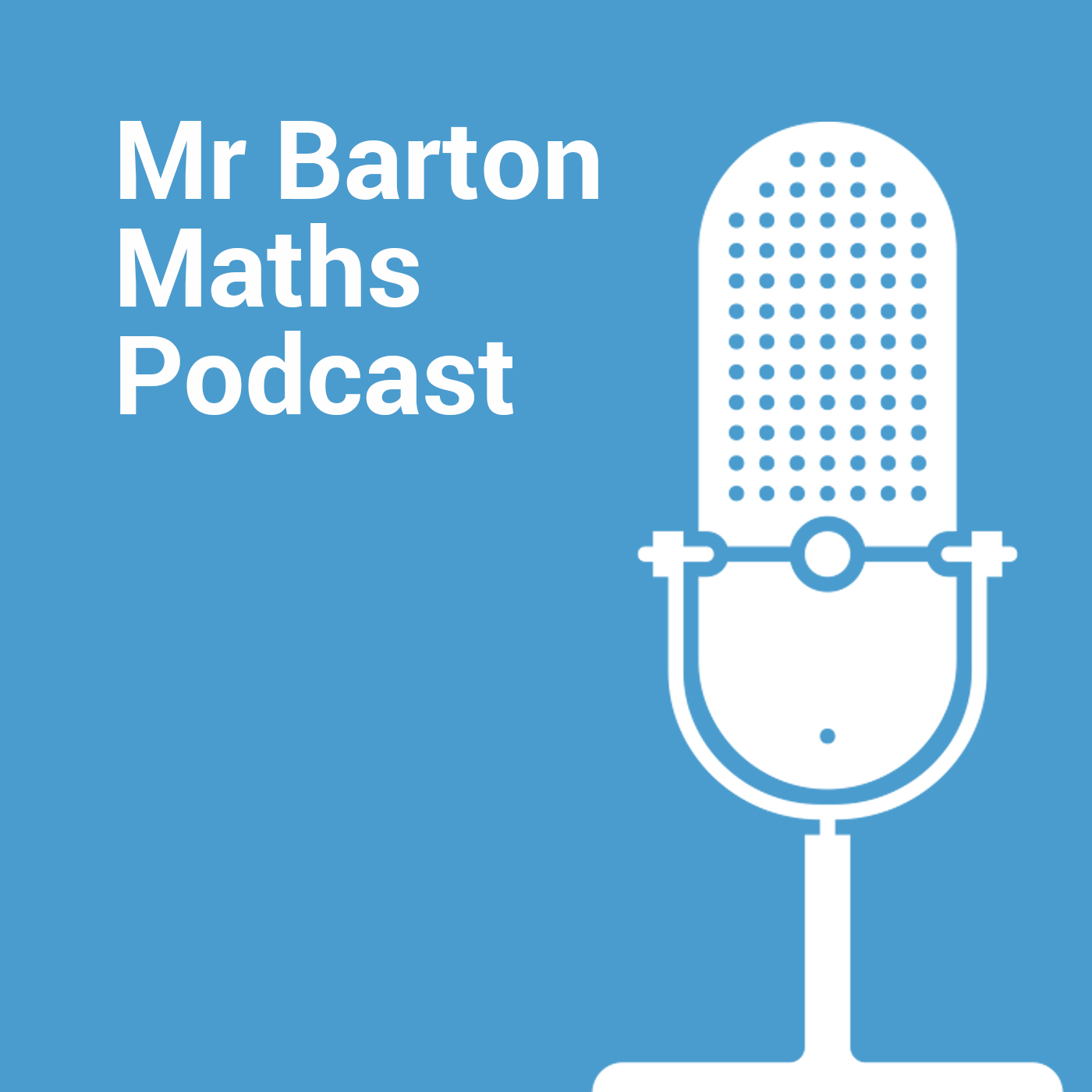
Craig Barton interviews guests from the wonderful world of education about their approaches to teaching, educational research and more. All show notes, resources and videos here: https://www.mrbartonmaths.com/blog/
Kris is, quite possibly, the cleverest person I know. Will Emney describes him as “cerebral”. Kris is a former maths teacher who was second in department at King Solomon Academy, where he worked alongside fellow podcast guest Bruno Reddy, achieving incredible GCSE results in challenging circumstances. Kris now works for TeachFirst, where he is Associate Director of Participant Development. We spoke in depth about how Kris plan his lessons, focusing on sequences not individual lessons, the influence of Siegfried Englemann, successful interleaving and the role of differentiation.
For more information about today’s guest, plus links to the websites, resources and ideas they mention, please visit the show notes page: http://www.mrbartonmaths.com/blog/kris-boulton-part-1-planning-lessons-engelmann-and-differentiation/

On this episode of the Mr Barton Maths Podcast, I spoke to Kris Boulton.
Kris is a maths teacher and the former second in department at King Solomon Academy, where he worked alongside fellow podcast guest Bruno Reddy, achieving incredible GCSE results in challenging circumstances. Kris now works for TeachFirst, where he is Associate Director of Participant Development, recruiting and training nearly 200 new teacher educators for the PGDE programme.
Kris’ blog “… to the real” is an absolute must read for all teachers, covering a wide range of issues, including how aspects of cognitive science, memory, philosophy, and even business principles can be applied to education.
If any of you have had the pleasure of speaking to Kris, and you have listened to one of my podcasts before, then you will not be at all surprised that Barton + Boulton does not equal Brevity. Indeed, Kris and I agreed to talk for two hours, and I had a list of questions to get through, covering areas such as questioning, schemes of work, variation theory, problem solving, and more. However, in the end I only really managed to ask one question: “how does Kris plan a lesson?”. But his answer is fascinating.
So, in covering that question we dived into issues such as:
- Why is planning a lesson the wrong way to approach planning?
- How and why does Kris break a topic – in this case simultaneous equations – into individual concepts?
- How has Kris been influenced by the work of Siegfried Engelmann?
- Can you teach the way Kris describes without the supporting behaviour and school ethos?
- How do you differentiate in a model of direct instruction, and indeed does differentiation matter?
- How do you interleave throughout a sequence of lessons, and what happens if students get stuck on a given concept?
- How can you tell that you have taught a successful sequence of lessons?
- What has Kris learned from lessons that did go wrong, and yet why as he unable to break that cycle for much of his first year of teaching?
As ever, I am ridiculously, biased, but this is pure gold. Kris is a thinker – “cerebral”, as previous podcast guest, Will Emeny described him. If any of you have been lucky enough to attend one of his workshops, or even just follow him on Twitter, you will have seen that for yourself. Kris has an ability to dissect issues, question assumptions, and convey complex ideas in ways that even someone like me can understand. There are few people in education that I have learned more from, and this interview is no exception.
I will be back at the end of the interview to share what I think is an important point about Direct or Explicit instruction, and Kris has promised to return, so I can work my way down the list of other questions I want to ask him. At this rate we should be done in around 87 hours, with the Boulton Box Set ready for some binge listening in time for Christmas 2026.
If you haven’t checked it out already, you may enjoy the research section of my website, which contains links and my takeaways to over 100 papers that have changed my approach to teaching. You can find the page at mrbartonmaths.com/teachers/research/. And the usual plea, that if you enjoy what you hear to give the podcast a quick rating or review on iTunes. I’m getting closer and closer to the Top 10 in the Education Chart. There’s just some obscure, low-budget affairs such as TED Talks, Tony Robbins and the London School of Economics standing in my way.
On Twitter Kris is @Kris_Boulton
His excellent blog can be found at: tothereal.wordpress.com
My usual plugs:
- You can help support the podcast (and get an interactive transcript of all new episodes) via my Patreon page at patreon.com/mrbartonmaths
- If you are interested in sponsoring an episode of the show, then please visit this page
- You can sign up for my free Tips for Teachers newsletter and my free Eedi newsletter
- My online courses are here: craigbarton.podia.com
- My books are “Tips for Teachers“, “Reflect, Expect, Check, Explain” and “How I wish I’d taught maths”
Thanks so much for listening, and I really hope you enjoy the show!
Craig Barton
